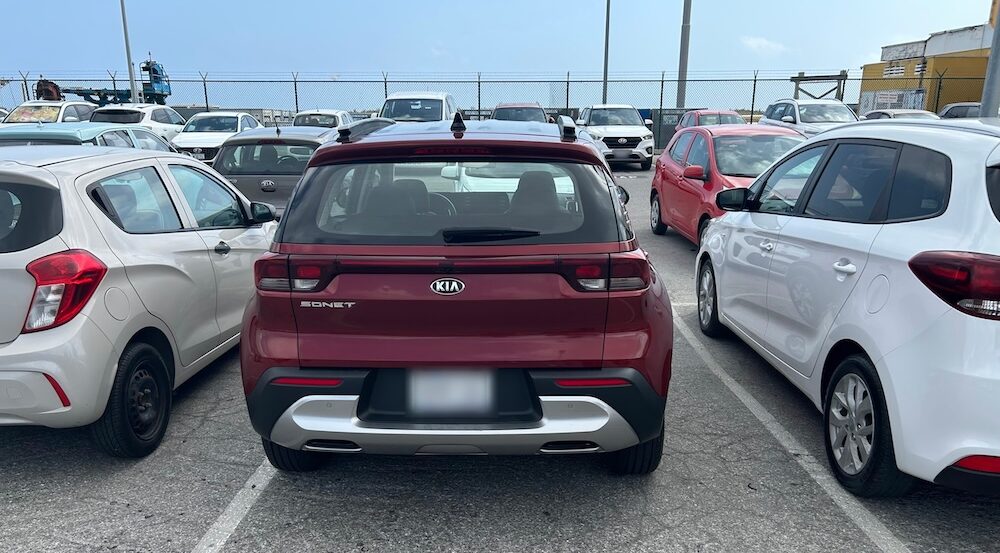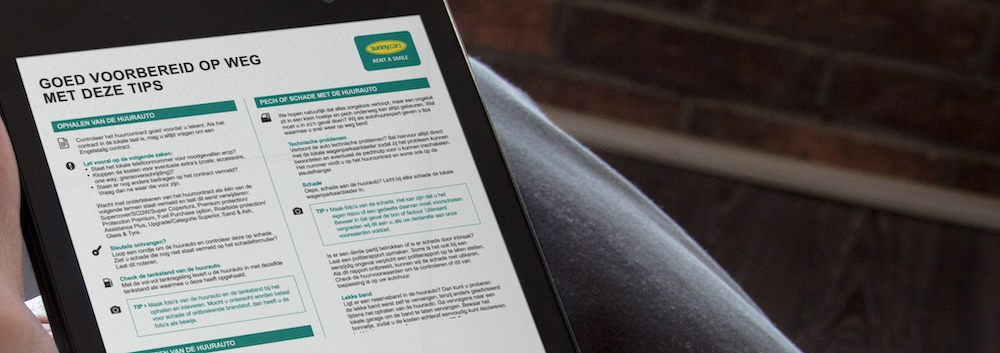When planning a holiday, people often opt for the flexibility and freedom that renting a car offers.
Yet this experience can sometimes turn into a frustrating puzzle of unexpected obstacles, especially when dealing with the practices of car rental companies and their agents. A recent incident involving the car rental service Sunny Cars, a company that positions itself as the specialist and market leader in the field of car rental, underlines the complexity and possible misunderstandings within this sector.
Founded in 1991 in Germany, Sunny Cars offers rental cars at more than 8.000 locations worldwide. Although the company does not own a fleet of vehicles, it works with both major international and local car rental companies. This network of partners offers a wide range of options, but also involves a complex web of different conditions and procedures. Such diversity in operating standards created confusion for Mario, a road trip enthusiast, during his recent experience in Curacao.
Mario, who prefers the independence of car rental to public transport, booked a car for a ten-day trip through Sunny Cars in the Netherlands. Under the agreement, a representative from the local rental partner, Alamo/National, would deliver the car to Mario's hotel. This was clearly stated in the agreement and further confirmed by a pre-completed online check-in procedure, which ensured that Mario had submitted all necessary personal details well in advance.

"We have received a reservation for you and we need to take the car to the hotel. Before we can bring the car, we need all the information."
Despite this, shortly before the expected delivery, Mario received a text message from an unknown number requesting data that had already been provided. After contacting the Alamo employee at the airport, he was told that the car had to be picked up there, contrary to the confirmed appointment. A subsequent call to the Dutch emergency number of Sunny Cars customer service to find out what was going on only resulted in frustration for Mario.
The Sunny Cars employee says that: "At Alamo, the car must be picked up at the airport by the renter himself. Rental companies are not allowed to enter the hotel grounds with their cars."
A bit of a strange story, because the same agreement states that the rental company will pick up the car at the hotel afterwards and Mario must leave the key at the reception. When Mario indicates that the agreement drawn up by Sunny Cars itself clearly states that the car will be delivered, the employee's defense is that he “should have read the 'small print' better.”
The employee says about the personal data entered: “We never pass on that data.” After Mario's further objections, the employee says: “Sir, you don't have to use that tone towards me. You should read the fine print,” and then she hangs up.

The initial agreement promised hassle-free delivery of the rental car to Mario's hotel, a service that meets the need for convenience and efficiency that many travelers seek.
Mario indicated that he does not simply give out his personal information such as driver's license and passport number on the telephone at an unknown number and would like to do this by email. The Alamo employee responds, “I understand you. I will discuss with my manager what needs to be done.” After about ten minutes a new message arrived on the unknown number. The employee has spoken to his manager and everything remains on their own terms and conditions. The only way to receive the car is for an Alamo employee to pick Mario up, take him to the airport, and he can do all the paperwork at the Alamo desk.
strike a tone
This example and the conversations underline the need for a cultural change within organizations active in the car rental sector. Customer satisfaction and service must come first, with clear communication channels and procedures to manage unexpected situations. Mario's experience shows that even when a company is considered a market leader, practices can deviate from the expectations created by marketing and brand promises.
This conversation provides insight into the communication challenges and lack of customer focus that Mario experienced. And since all conversations at Sunny Cars are recorded for internal training purposes, they can now use the recording to indicate what not to do.
The use of certain phrases or scripts by helpdesks and customer services, such as referring to 'sounding tone' as a reason to end a call, raises questions about the quality of customer service and the strategies used to deal with complaints or problems. to go. Addressing a customer's 'wrong tone' can be seen as a mechanism to avoid responsibility for not meeting the customer's service expectations. When a customer service representative disconnects, it leaves the customer with a feeling of powerlessness and frustration as the issue remains unresolved.
While Mario was ultimately helped by Alamo, the response from Sunny Cars' customer service showed a dire lack of professionalism and customer service. It exposes a major problem of the platform industry in the car rental industry: the inconsistency in service and the lack of clarity of conditions that often come at the expense of the customer




